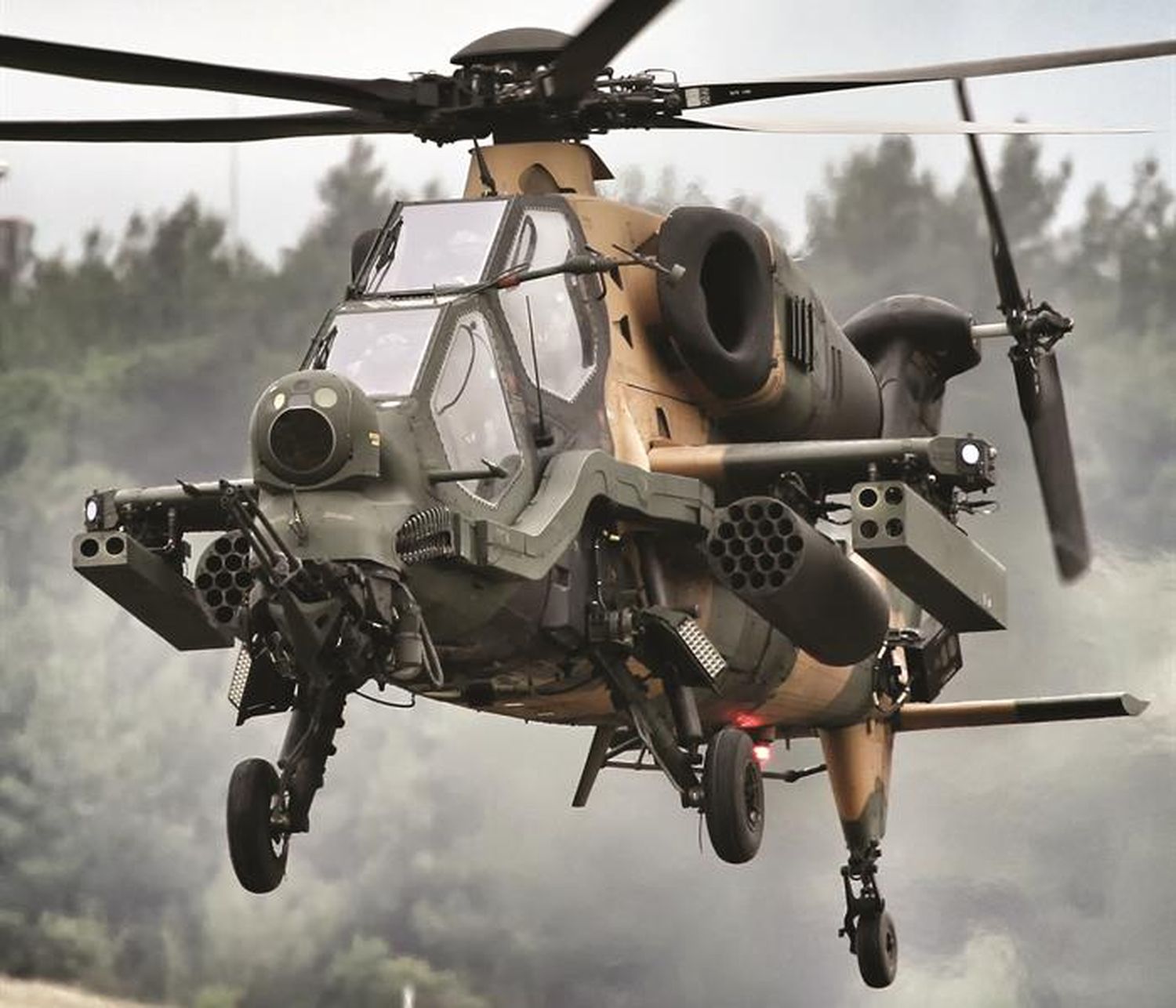Morocco seeks to acquire T-129 helicopters from Turkey
In anticipation of the early fall of US sanctions on Turkey, Rabat and Ankara resumed the negotiations that they had begun in 2018 for the purchase of the Turkish reconnaissance and attack helicopter T-129.
According to sources from the Morocco World News, the Royal Moroccan Air Force (FAR) plans to buy several helicopters and is in «late-stage negotiations» with Turkey on the T-129. Although the FAR initially expressed interest in the deal in 2018, sanctions imposed by the United States on Turkey in late 2020 hampered the deal’s progress.
Former President Donald Trump imposed sanctions after Turkey completed the purchase of the S-400 missile system from Russia. The S-400 is believed by many to be among the most advanced mobile surface-to-air missile systems currently in operation, and the move angered military officials, who view the S-400 as a significant threat to NATO’s air and security capabilities.
Turkey, which is a current member of the NATO alliance, was hit with sanctions under the CAATSA law (Countering America’s Adversaries Through Sanctions Act). As a result, all US export licenses to the Turkish defense industry were canceled. It also implied the expulsion of Turkey from the JSF F-35 program, of which he was one of the founding partners.
The T-129 is the answer to the tactical reconnaissance and attack helicopter program (ATAK, as it is called in Turkey). It is a modernized and improved version of AgustaWestland’s AW-129, produced under license by Turkish Aerospace Industries (TAI).

T129 ATAK
But Turkey needed the approval of the United States for the export of these helicopters since they are powered by American engines: the LHTEC T800-4A, which is an export variant of the CTS800 engine, jointly developed by Honeywell and Rolls-Royce. Each T-129 ATAK is powered by 2 of these.
Ankara is adamant about its refusal to deactivate its S-400 program, and during a bilateral meeting between the United States and Turkey earlier this year, neither side seemed ready to end the dispute.
Despite this, the presidents agreed to a progressive easing of the CAATSA sanctions and Rabat and Ankara are confident that the sale of the T-129 Atak helicopters will eventually materialize.
In fact, the US has already approved the export license for the T800-4 engines for the export of the T-129 to the Philippines, thus setting a positive precedent for Morocco. Another likely customer is Pakistan, which has a $ 1.5 billion contract pending for the supply of 30 T-129 helicopters.
Morocco has reportedly already completed several other arms deals with Turkey, including the purchase of 13 Bayraktar TB2 armed UAVs, as well as various drone-related service teams.
Everything seems to indicate that the Turkish defense industry is positioning itself as a supplier of preferential defense material within Muslim nations.


Comentarios
Para comentar, debés estar registrado
Por favor, iniciá sesión